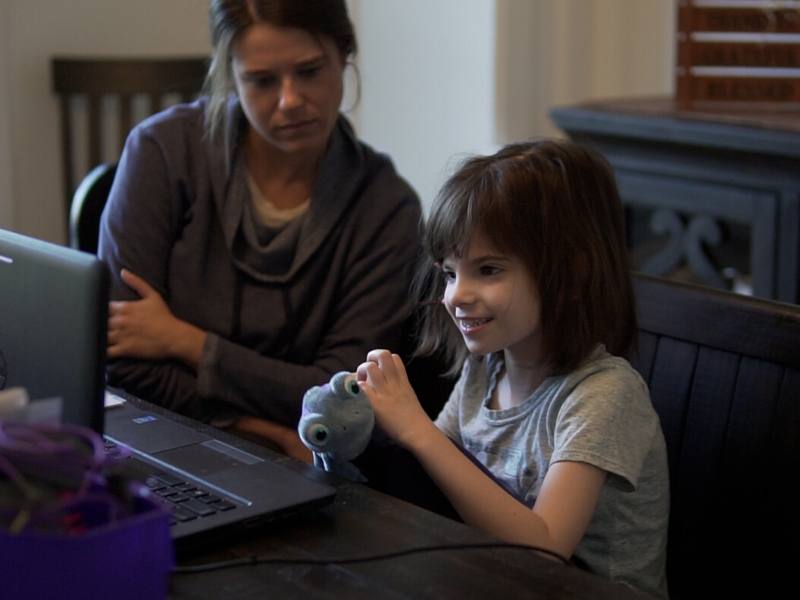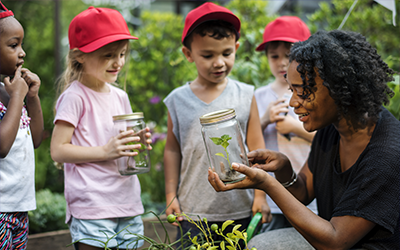Have you ever shown up to a party or wedding and felt under or over dressed? Have you turned up at a friend’s house for game night and realized your partner forgot to tell you it was potluck and you’re empty-handed? What about when you’ve gone to a restaurant and realized after arriving that there’s a dress code or that you need to tip and you didn’t bring cash? Think about a time where you’ve been embarrassed or frustrated because you didn’t meet an expectation you didn’t know about beforehand?
What happened?
How did it feel?
What would you have preferred happened?
All of these experiences of discomfort could have been avoided if you had known the expectations in advance, right?
Setting expectations is an integral part of helping children meet expectations and manage their feelings.
This year families will be experiencing holidays in different ways due to the pandemic. Many families will not be seeing grandparents or extended family due to the risk of exposure to Covid-19. Events that have often anchored the holidays in the minds of children may be cancelled (e.g., Santa at the mall, holiday parties, community gatherings, religious services, parades).
Children have experienced changes in major routines since the beginning of 2020. Many of these changes have happened so quickly that children did not have the chance to emotionally adjust. For example, schools closed quite suddenly in the Spring and decisions about virtual/hybrid/face to face learning have been made by the month and sometimes down to the week in some school districts.
Fortunately, the holidays don’t have to be experienced that way. We, as caregivers, are in charge of our holiday plans. They don’t depend on the government, the school district, or any organization. We can decide now what the holidays will look like and begin setting expectations with children in advance.
I want to discuss two different aspects of setting expectations: topics that may need to be considered and discussed, and language you can use to communicate with children.
These are some areas you may need to consider setting expectations:
Family Gatherings
Will you attend? Will you wear masks? Will there be social distancing? Will certain family members not be in attendance due to their decisions about their health? Children need to know in advance what to expect at family gatherings this holiday season. Don’t wait until you’re on the way to the gathering in the car to set expectations. Start talking about it now! Bring it up several times before the actual holiday arrives and allow children to share their thoughts and feelings. It might sound something like this:
“I want to talk to you about Thanksgiving this year. Usually we go to Grandma’s house and all your aunts and uncles and cousins come and we eat and play games. Do you remember when we did that last year?” Asking if they remember is important depending on the age. If they don’t remember, then the change this year may not be a big deal to them. If they do, it may be a bit more challenging. “This year is going to be different, kind of like how school is different right now.” (Insert your plans and expectations. I’ll share my family plans.) “This year we are all going to make food at our own houses and then we are going to Zoom with all of our aunts and uncles and cousins. We are still going to play games, except we will be online together instead of in person. I’m feeling sad we won’t see our family, but I’m excited about the new games.” (You’ve just modeled how to share emotions.) “What feelings are you having about this?” (wait) “What questions do you have?” (Use this instead of “Do you have questions?”)
Traditional Holiday Events
What are the events your family attends every year during the holidays? My family loves to go to the Fantasy of Lights in my hometown of Wichita Falls, Texas. We gather at Grandma’s house for dinner so she feels cozy and included since Grandpa passed a few years ago. Christmas Eve services are almost always on the books, and since my son was born we’ve started celebrating Christmas morning at my parents’ house. To kick off the holiday season, we almost always go to the Dallas Symphony Orchestra’s holiday show and have a family cookie baking night.
It is quite likely that none of these events will happen this year.
Grandma is elderly. Mom is a survivor of lung cancer and a lobectomy. My son is considered high risk, so crowding into a church building isn’t a risk we are willing to take. The pandemic has drastically changed how we will engage in holiday events this year.
Just as you talked about family gatherings and how those will look different, talk about how events surrounding the holiday will look different this year. Think of ways you can substitute those events with safe ones. For example, we plan to stream a musical holiday show instead of going in person. We might even get all dressed up! We will likely have our own cookie baking night at home and gather virtually with Grandma and our parents. If my son was older, the conversation might sound like this:
“I want to talk to you about our (insert holiday) traditions. You might have to explain that “traditions are things we do every year around the holidays” and give an example. What (insert holiday) traditions can you think of that you’re looking forward to this year? Allow your child time to talk about what they’re looking forward to. Focus on the events they are excited about and determine whether those are safe events. If they aren’t you might say something like, “I really like to go to the music show too. This year instead of going to Dallas for the show, we’re going to watch it at home on TV. I’m feeling disappointed that we won’t get to see Santa come out at the Christmas show, but I’m excited that we can still watch on TV because we can have snacks while we watch!” You’ve just modeled how to share emotions. “What feelings are you having about this?” (wait) What questions do you have?” (Use this instead of “Do you have questions?”)
Gifts
The financial impacts of the pandemic have been significant for many families. Your family may have traditions related to gift-giving that may need to look different this year. And that’s okay! It’s important to prepare children for this difference. I am NOT saying we need to explain financial difficulties to children. Finances are an adult issue, and children should feel as safe and secure as possible. However, it is possible to set expectations around gift-giving without referencing finances.
As caregivers, we have two options: Pretend like everything is going to happen as normal and then manage the disappointment and hurt feelings on that special holiday.
or (and preferably)
Tell children in advance that gift-giving is going to be different this year so we can get all those thoughts and feelings processed before the holiday. It doesn’t mean there won’t be thoughts and feelings on the holiday, but they will most likely be less intense if there has been regular discussion and processing prior to the holiday. There is no benefit to not telling a child they won’t be getting a pony or the newest gaming system. The benefit of communicating the truth is that it helps them adjust their expectations so they are better able to enjoy the gift they DO receive. It might sound like this:
“I saw that you wrote your gift wish list. I want to look at it together and talk about what’s on it. Your wish list looks so fun. I see that you put ______ on your list. I am not (or Santa is not) going to be able to get that gift for you this year. But can you think of something fun we could do? Maybe we could have a special chocolate chip pancake breakfast and watch Christmas movies? (*Insert things you could do together.) How are you feeling about that? What questions do you have?”
*Go hiking or biking. Do a craft with supplies from your local dollar store. Drive around at night with closed mugs of hot chocolate and do a scavenger hunt of different yard decorations.
A few days later, circle back to the discussion again and take the opportunity to teach your child how to receive a gift that isn’t exactly what they wanted.
We’ve all had the experience of opening up a gift to discover we’ve received something we just don’t care for. As adults, we don’t throw tantrums or point out that we don’t like it because we’ve learned social skills related to this experience. Our children can learn this skill one of three ways.
1) They observe someone else, usually another child, express they don’t like something, observe the negative reactions of the adults, and promise themselves they’ll never do that.
2) They themselves express that they don’t like something, experience the negative shaming reaction of adults, and promise themselves they’ll never do that again.
or (and preferably)
3) They are pre-taught to show appreciation for every gift and the consequences of what happens when you don’t (i.e. people get their feelings hurt and it makes them sad). Discussion and role plays that allow children to practice are helpful when teaching this skill. When they are pre-taught the skill, they are more likely to meet expectations because you’ve set them up in advance. This doesn’t mean they won’t feel disappointed or sad or even that they will master the skill this holiday, but we have a unique opportunity to introduce this social skill this year due to the financial impacts of the pandemic.
We have a unique opportunity to introduce this social skill this year due to the financial impacts of the pandemic.
Holidays this year are certainly going to be different. It is 100% okay to grieve the loss of the connections and fun that will be missed, and we should walk with children through those experiences and emotions. As caregivers, we have the opportunity to model how to process the emotions and mold the experience our children have during the holidays this year.
This post can be found in its original form here.









